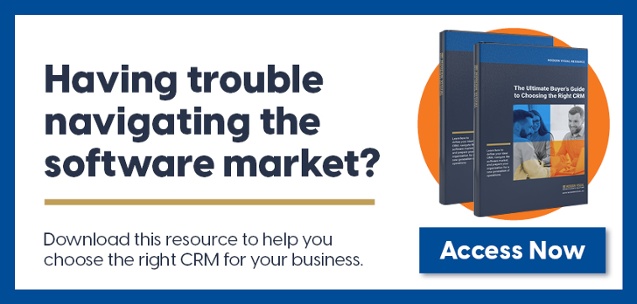
Mastering the Real Estate Sales Funnel: Turning Lookers into Loyal Clients
A well-oiled sales funnel is the backbone of any successful real estate business. But keeping it running smoothly can be a challenge. The real estate sales funnel is the lifeblood of your business, transforming casual interest into successful transactions. It's the roadmap that guides potential buyers (or sellers) from initial awareness of your services all the way through to conversion. Although, simply having a funnel isn't enough. To thrive, you need to optimise it for efficiency and ensure it effectively nurtures leads.
Here's where technology becomes your secret weapon. Automation tools and CRM systems can streamline your funnel, free up valuable time for high-value activities, and empower you to nurture leads more effectively.
Let's dive into 5 tips to get you started on transforming your sales funnel into a lead-converting machine for your Real Estate business.
Quick Links:
- Using automation in Real Estate
- The Power of a CRM
- 5 Streamlining Tips for Your Sales Funnel with CRM & Automation
Using automation in Real Estate:

You can automatically send a series of informative emails to new leads, each addressing their specific needs. This could include a welcome email, followed by content relevant to their search criteria (e.g., market reports on their desired neighbourhood, property listings that match their preferences). Marketing automation software allows you to create pre-written email sequences triggered by specific actions, such as a website visit or downloading a buyer's guide.
👍Social Media Engagement:
Social media is a goldmine for leads, but keeping up with comments and enquiries can be time-consuming. Consider automated chatbots that answer basic questions and schedule appointments, or schedule pre-written social media posts that showcase properties and highlight your expertise.
✔️Lead Scoring and Prioritisation:
Not all leads are created equal. Automation software can assign scores to leads based on their online activity and engagement with your content. This allows you to prioritise high-potential leads and allocate your time accordingly.
The Power of a CRM:

A Customer Relationship Management (CRM) system is another essential tech tool for real estate businesses. It acts as a central hub for all your client data, interactions and property information.
Here's how a CRM benefits Real Estate:
- Streamlined Communication: No more hunting for lost emails or phone messages. A CRM keeps track of all communication with each client, ensuring a seamless and consistent experience.
- Enhanced Organisation: Say goodbye to scattered spreadsheets and sticky notes. A CRM allows you to organise client information, property details, and transaction timelines in one place, making it easy to stay on top of every lead and deal.
- Improved Client Insights: A CRM provides valuable data and analytics on your client interactions. This allows you to identify patterns, understand your target audience better, and refine your marketing strategies for optimal lead generation.
5 Streamlining Tips for Your Sales Funnel with CRM & Automation

- Trigger: Payment Received
- Action: Automatically move deals through the pipeline and notify customers with pre-written templates.
- Example: Imagine a lead expresses interest in a property and submits an offer. Once their deposit is received, a pre-set automation in your CRM automatically moves the deal from the "Offer" stage to the "Under Contract" stage. This ensures your pipeline stays up-to-date and reflects the latest progress.
- Trigger: Specific Stage Reached in Pipeline (e.g., "Mortgage Pre-Approval")
- Action: Send Automated Email with Next Steps & Resources
- Example: When a buyer reaches the "Mortgage Pre-Approval" stage, an automated email is triggered. This email congratulates them on this crucial step, outlines the next steps in the process (e.g., scheduling an appraisal), and provides helpful resources like a mortgage checklist. This keeps clients informed and engaged throughout the journey.
- Trigger: Cancelled Appointment or Unreturned Call
- Action: Send Automated Reminder Email/Text
- Example: A potential buyer schedules a property viewing but cancels the appointment. A CRM can automatically send a polite reminder email or text message to reschedule or communicate other information that’s relevant to your terms and conditions. This allows you to reschedule while demonstrating your professionalism.
- Trigger: New Lead Captured or Task Assigned
- Action: Generate Automated To-Do List with Due Dates
- Example: When a new lead signs up for your email list or expresses interest in a property, a CRM can automatically create a to-do list for you. This list might include tasks like sending a welcome email, scheduling a follow-up call, or adding them to a targeted email campaign. This keeps you organised and ensures no lead falls through the cracks.You could build automated workflows to nurture this lead, until they’re willing to chat with you. Saving you time and ensuring you focus on your most important leads.
- Trigger: Deal Closed or Milestone Achieved
- Action: Send Automated Email Requesting Client Feedback
- Example: Once a property sale is finalised, a CRM can automatically send an email to the client requesting feedback on your services. This feedback can be invaluable for improving your customer service and refining your sales process. With positive feedback you could then follow up by asking for a positive review.

By implementing these tips and exploring the automation features of your CRM, you can transform your sales funnel into a well-oiled machine that efficiently converts leads into satisfied clients.
Remember, a little automation goes a long way in saving time, boosting efficiency and ultimately driving success in the competitive world of real estate.
Don't stop now. Keep learning
 What is HubSpot? A Complete Guide for Enterprise Businesses
If you’ve ever felt like your marketing, sales and service tools are scattered across too many...
What is HubSpot? A Complete Guide for Enterprise Businesses
If you’ve ever felt like your marketing, sales and service tools are scattered across too many...
 How to clean data in Excel before Switching CRMs
Excel can be a powerful tool for cleaning data before migrating to a CRM system. Many businesses...
How to clean data in Excel before Switching CRMs
Excel can be a powerful tool for cleaning data before migrating to a CRM system. Many businesses...
 WordPress vs Content Hub (HubSpot)
How to pick the right platform for your business: Both WordPress and Content Hub are powerful...
WordPress vs Content Hub (HubSpot)
How to pick the right platform for your business: Both WordPress and Content Hub are powerful...


